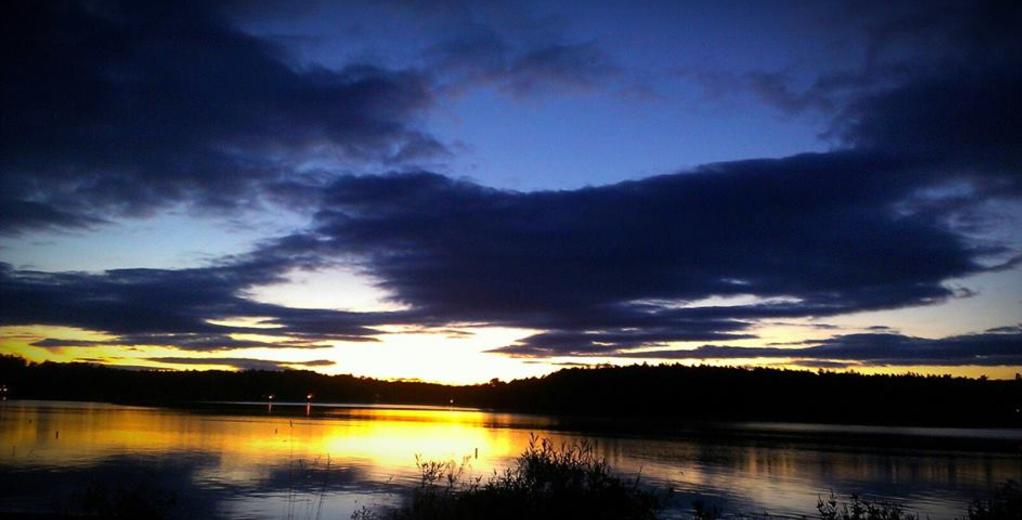Herring Pond Wampanaog Burial Ground Hits Snag
February 17, 2020

Their dead are buried here, so the town gave them back the cemetery that, by rights, belonged to them in the first place.
PLYMOUTH – Their dead are buried here, so the town gave them back the cemetery that, by rights, belonged to them in the first place. Now, Herring Pond Wampanoag Tribe chairlady Melissa Ferretti says state law is preventing Herring Pond Wampanoags from taking ownership of the burial ground.
Ferretti said the town’s attorneys have flagged the transfer of the property as problematic, citing a state law that governs the transfer of burial grounds.
Massachusetts General Law Chapter 114 Section 17 reads: “A town shall not alienate or appropriate to any other use than that of a burial ground, any tract of land which has been for more than one hundred years used as a burial place; and no portion of such burial ground shall be taken for public use without special authority from the general court. ‘Burial place,’ as referred to in this section, shall include unmarked burial grounds known or suspected to contain the remains of one or more American Indian.”
However, the burial ground in question actually belongs to the Herring Pond Wampanoag tribe, as it has from the beginning, Ferretti said, rendering this story bizarre. The people buried in these graves are tribal member ancestors. In addition, the burial ground would not be for “public use” as the law states, but rather for the Herring Pond Wampanoag people. It’s not clear how this law applies to this transaction. The way the law is written would suggest that its intent was to protect the Native American ownership of these burial grounds, not question it.
In the autumn of 2018, Town Meeting voted to transfer this six-acre parcel off Long Pond Road in Cedarville, which contains the burial ground, back to the Herring Pond Wampanoag through its nonprofit group by the same name. The town gained control of the property when it took the land in tax title. Now, the town can’t simply transfer this parcel back to the Wampanoag without a lengthy and involved process, Ferretti said.
Ferretti said town officials are in favor of her group owning the land; this has nothing to do with a change of heart. It’s just that this transfer has to go through the proper channels, and they involve the state Supreme Judicial Court.
Apparently, Ferretti’s group will have to petition to have an article placed on the fall Town Meeting warrant requesting the transfer all over again. If Town Meeting approves the measure, it must then gain approval from the state supreme court for it to be official.
How long that will take is anyone’s guess. But, given the historically glacial pace at which legal issues progress, Ferretti isn’t hopeful this issue will be resolved any time soon.
“They did a genealogy and we’re clearly the people that owned it,” Ferretti said. “They did a Massachusetts survey back when the graveyard was found. I called the Commission on Indian Affairs. Jim Peters said, ‘Well what did they do the first few times they transferred the property? How was the developer able to get the property in the first place?’”
In the meantime, Ferretti said the town is trying to help by issuing the Herring Pond Wampanoag Tribe a license so the group can continue its restoration work on the land, repairing gravestones and conducting a survey to determine the perimeter of the burial ground, since some graves lack stones.
Ferretti grew up in this area of Cedarville and noted that the Herring Pond Wampanoag were the first natives to be assimilated by the Pilgrims. Ferretti and her cousins are all Harding descendants. Harriet Saunders Harding was the common ancestor, she added. The tribe’s lineage is set forth in the Earl Report of 1859, which references John Milton Earl’s “Indians of the Commonwealth” report to the governor, which in turn documents various families and tribes, their whereabouts and landholdings.
For these Wampanoags, the sting of the European colonists’ takeover of their lands hasn’t worn off, as state law is now preventing them from taking control of their own burial ground, in spite of a town’s decision to give it back to them.
Town Manager Melissa Arrighi could not be reached for comment by press time.